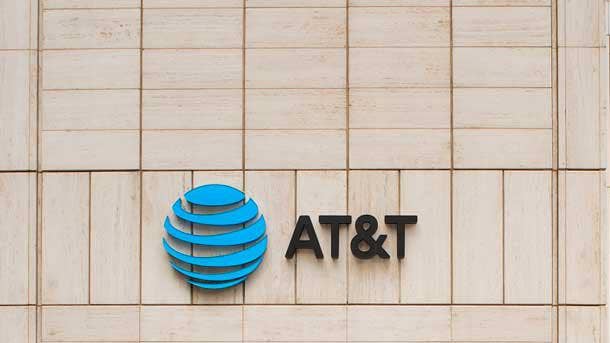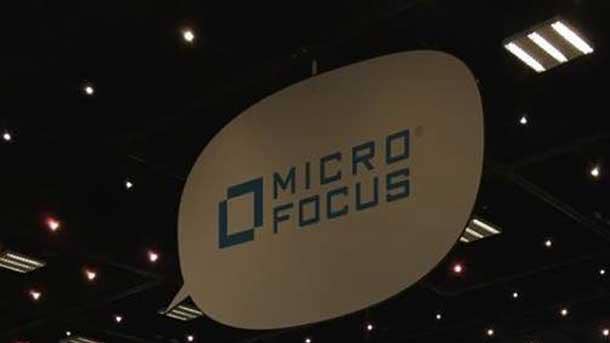5 Companies That Came To Win This Week

The Week Ending March 1
Topping this week's roundup of companies that came to win is AT&T, which won its legal battle to preserve its $85.4 billion Time Warner acquisition.
Also making the list this week are Microsoft for some savvy moves to accelerate momentum for its Azure cloud platform, WhiteHat Security for launching a new program to help partners expand into DevSecOps, Micro Focus for completing the integration of the HPE software partner operations with its own, and solution provider Perficient for setting ambitious acquisition goals for 2019.
Not everyone in the IT industry was making smart moves this week, of course. For a rundown of companies that were unfortunate, unsuccessful or just didn't make good decisions, check out this week's Five Companies That Had A Rough Week roundup.

AT&T Prevails In Appeals Battle With Justice Department Over Time Warner Acquisition
AT&T has won its legal battle with the U.S. Department of Justice over its $85.4 billion acquisition of media giant Time Warner.
A three-judge panel of the U.S. Court of Appeals for the District of Columbia ruled unanimously this week that the merger can stand, affirming the decision last year by U.S. District Court Judge Richard Leon that the acquisition could proceed with no restrictions.
The DOJ indicated that it plans no further appeals in the case.
AT&T announced the deal to buy Time Warner in October 2016. But the Department of Justice sued to block the deal in 2017, leading to a six-week trial before Judge Leon last year.

Microsoft Gains Ground With Azure And Makes Strategic Moves With The Cloud Platform
Microsoft’s Azure cloud platform is gaining ground on Amazon Web Services in cloud adoption, according to the results of an annual poll of IT professionals, the RightScale State of the Cloud Report from Flexera. The poll found that overall Azure adoption increased to 52 percent from 45 percent last year while AWS adoption was flat at 61 percent.
And Microsoft isn’t letting up. This week the software giant debuted Azure Sentinel, a SIEM (security information and event management) tool for cloud-scale analytics that utilizes AI to reduce cyberthreat noise. Microsoft said the software is the first SIEM tool that is native to a cloud platform.
And Microsoft and VMware are reportedly close to revealing a joint hybrid-cloud development project that will bring a fully supported version of VMware’s virtualized compute infrastructure into the Azure cloud environment. Such a system would provide a competitor to VMware Cloud on AWS, which debuted in 2017.

WhiteHat Security Debuts New Channel Program To Boost Partner Opportunities In DevSecOps
WhiteHat Security wins kudos for launching a new partner program this week, offering high-touch engagement and deep technical training, in a bid to get the channel more involved in selling its application security technology.
WhiteHat has traditionally relied on its direct sales force to sell its software for DevSecOps – building security into applications early in the development process – while partners lacked access to the kinds of training and materials sales reps enjoy.
The new program is designed to give partners the knowledge and tools needed to position and sell into the development side of a customer business. It will include partner business managers, who will provide detailed sales training around DevSecOps opportunities, and online certification that will help partners make better sales presentations to prospective customers.

Micro Focus Fuses Legacy HPE Software Channel Into New Partner Program
Speaking of partner programs, Micro Focus wins applause this week for bringing its own partner program and the legacy Hewlett Packard Enterprise software channel program together into a single partner program that the company said is simple and focused on predictable profitability.
Micro Focus merged with the spun-off HPE software business in September 2017 in a deal value at $8.8 billion. But until now Micro Focus has operated the old HPE partner program separately from its own.
In addition to making it easier for all partners to work with Micro Focus, the new channel program will provide all partners with access to the entire Micro Focus product portfolio and customer base.
Solution providers will be the company's primary route for driving new business. The company hopes the new program will boost the share of business through the channel from between 40 and 45 percent today to between 50 and 55 percent within a year or two.

Perficient Sets Ambitious Revenue Goal From Acquisitions
Solution provider Perficient has set itself an ambitious goal of generating about $50 million more in annual revenue from potential acquisitions this year. CEO Jeffrey Davis stated the goal during the company's fourth-quarter and year-end earnings call this week.
Perficient has been aggressive on the acquisition front in recent years, including buying a number of companies that have greatly expanded its digital transformation consulting services. Last year the company made three acquisitions: Elixiter, Stone Temple Consulting and Southport Services Group, that added a combined $32 million to Perficient's top line.
Davis said the company has a few merger and acquisition deals that are in late-stage discussions and he was confident that "we'll be able to get at least a couple of deals done this year." He said the potential acquisitions could add approximately $50 million to Perficient's annual revenue run rate.